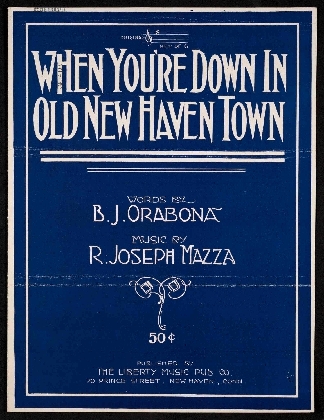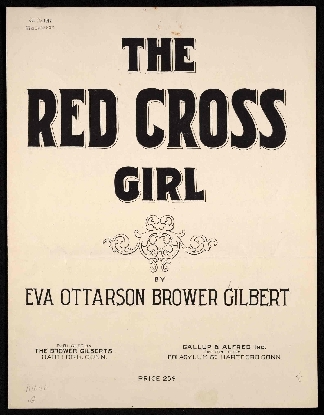Sheet Music Masters
With film being in its infancy, and television not even invented yet, music became a quick and popular way of disseminating information, and Connecticut knew this very well. As soon as the United States entered the war, publishers in Connecticut began publishing and distributing sheet music and songbooks of patriotic songs all across the United States. The main publishing houses in this endeavor were from Hartford, but other large cities in Connecticut quickly followed suit, including New Haven.
In some instances, these songs were written about the towns in which they were published. For example, “When You’re Down in Old New Haven Town” was written about a soldier coming home from France and getting a warm welcome in New Haven. Just like in other cities in Connecticut and across the United States, citizens of New Haven wanted the soldiers to know that they would welcome them with open arms upon their return to the states. Not only did this help boost morale for the soldiers, it kept the citizens of New Haven on the same page as to their allegiance to the soldiers and the war effort.
These songs published in Connecticut were also used as a way of saying thank you to the civilians who were assisting in the war effort. Most often, these thank you’s were going to the Red Cross. One song published in Hartford by The Brower Gilberts (and distributed by Gallup & Alfred Inc., also of Hartford), called “The Red Cross Girl,” tells of a wounded soldier seeing the Red Cross nurse taking care of him as his angel. Specifically the song states, “With comfort and words of compassion, she soothes all our pain and alarm / The girl with the smile of an angel, and the ruby red cross on her arm.” This depiction of women of the Red Cross being angels of mercy can be viewed as a propaganda pull to get more women to become Red Cross nurses. Whether consciously or not, every young women (which these songs and other recruitment advertisements were marketed towards) wants to be seen as a perfect angel by a brave soldier (who may or may not later become her husband).

